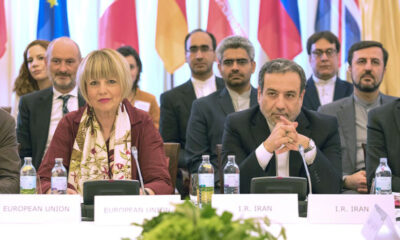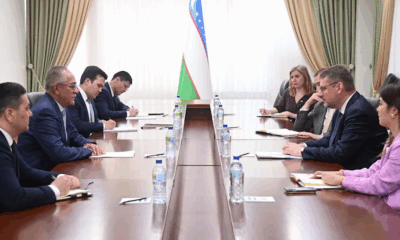Business
Price hike adds to humanitarian crisis in Afghanistan
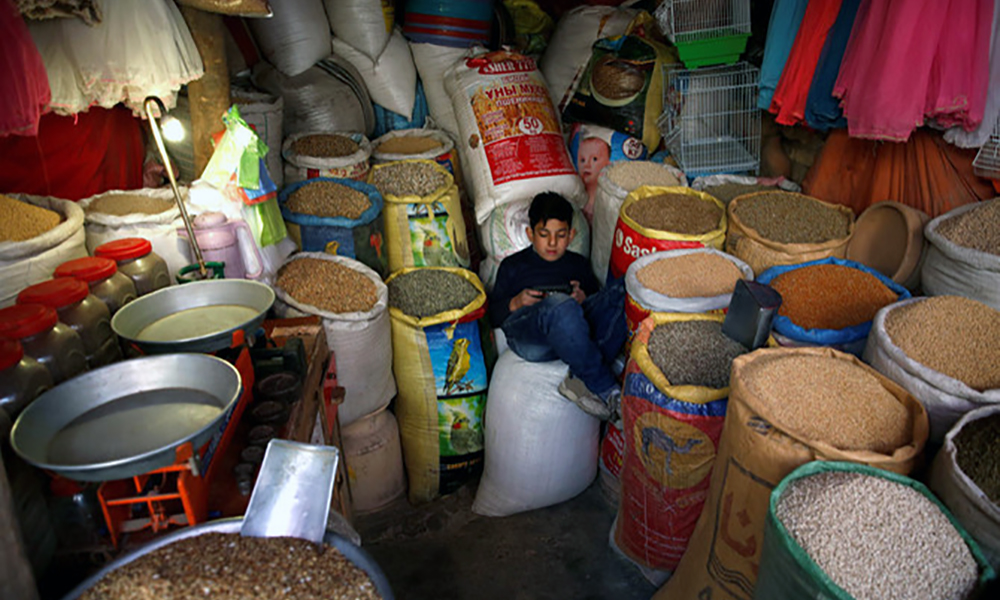
Grain prices in Afghanistan have kept soaring due to the sanctions imposed by the United States and the ongoing conflict between Russia and Ukraine, adding to the aggravated humanitarian crisis suffered by the Afghan people, CCTV reported.
Abdul Shukoor is a vegetable vendor who has been living at a hillside settlement named Demazang north of downtown Kabul for 20 years with his family.
Resulting from the poor living conditions on the hill, the local residents are suffering severe water shortage and therefore are forced to carry drinking water uphill with donkeys each day, read the report.
Frequent power outage is another issue upsetting the locals.
A China Central Television (CCTV) reporting crew has recently paid a visit to Abdul Shukoor’s home — a room measuring less than 10 square meters which houses 10 family members.
“I have two sons and six daughters. One of my sons died from illness. I can only make 5,000 to 6,000 Afghanis (around 56 to 67 U.S. dollars) each month, which is far from being enough to support the livelihood and subsistence of my family and to taking good care of my kids,” said Shukoor.
His late son passed away one month ago from cancer as a result of lacking money.
“My son who died was 18 years old this year. He was diagnosed with cancer a year ago and I don’t have enough money to take him to Pakistan or India for treatment. I lost my son because I don’t have money,” said Shukoor.
He said he borrowed a total of 300,000 Afghani (around 3,375 U.S. dollars) to take his son to doctors and now he has not paid the house rent for months. And the food price hike has added to the family’s hardship.
Some 19.7 million people, almost half of Afghanistan’s population, are facing acute hunger, according to the Integrated Food Security Phase Classification (IPC) analysis conducted in January and February 2022 by Food Security and Agriculture Cluster partners, including the Food and Agriculture Organization of the United Nations (FAO), the United Nations World Food Program (WFP) and many NGOs.
The analysis also pointed out that the Russia-Ukraine conflict continues to put pressure on Afghanistan’s wheat supply, food commodities, agricultural inputs, and fuel prices.
According to a grain ship owner named Shafi, the prices of rice and flour have more than doubled compared with six months ago.
“The rice price was some 70 to 100 Afghanis (around 0.8 to 1.1 U.S. dollars) per kg and it has now surged to about 150 to 200 Afghanis (around 1.7 to 2.2 U.S. dollars) per kg. The best quality rice is now sold at 180 to 200 Afghanis (about two to 2.2 U.S. dollars) per kg,” Shafi told the CCTV.
Following the withdrawal of U.S. troops from Afghanistan in August last year, the U.S seized seven billion U.S. dollars worth of frozen assets of the Afghan central bank, which has aggravated the humanitarian crisis in the country.
“The money frozen by the U.S. government belongs to the Afghan people. They should not have done that because the money is property of our people. What the U.S. cares about is only to maximize interests for itself, and it has done nothing conducive to the Afghan people. If they were here to help us, then why have we still been living in shabby houses like this and seeing nothing improved in our lives. The U.S. came here to pursue their own interests instead of helping the poor here,” said Shukoor.
Business
US and China reach deal to temporarily slash tariffs, easing slump fears

The United States and China have agreed to temporarily slash reciprocal tariffs in a deal that surpassed expectations as the world’s two biggest economies seek to end a damaging trade war that has stoked fears of recession and roiled financial markets.
The U.S. will cut extra tariffs it imposed on Chinese imports in April this year to 30% from 145% and Chinese duties on U.S. imports will fall to 10% from 125%, the two sides said on Monday. The new measures are effective for 90 days, Reuters reported.
The dollar rose and stock markets lifted following the news, which helped allay concerns about a downturn triggered last month by U.S. President Donald Trump’s escalation of tariff measures aimed at narrowing the U.S. trade deficit.
“Both countries represented their national interest very well,” U.S. Treasury Secretary Scott Bessent said after talks with Chinese officials in Geneva. “We both have an interest in balanced trade, the U.S. will continue moving towards that.”
Striking a conciliatory tone towards China, Bessent was speaking alongside U.S. Trade Representative Jamieson Greer after the weekend talks in Switzerland in which both sides hailed progress on narrowing differences.
“The consensus from both delegations this weekend is neither side wants a decoupling,” Bessent said. “And what had occurred with these very high tariffs … was the equivalent of an embargo, and neither side wants that. We do want trade.”
The tariff dispute had brought nearly $600 billion in two-way trade to a standstill, disrupting supply chains, sparking fears of stagflation and triggering some layoffs.
The Geneva meetings were the first face-to-face interactions between senior U.S. and Chinese economic officials since Trump returned to power and launched a global tariff blitz, imposing particularly hefty duties on China.
Bessent said the deal did not include sector-specific tariffs and that the U.S. would continue strategic rebalancing in areas including medicines, semiconductors and steel where it had identified supply chain vulnerabilities.
The accord went further than many analysts had expected following weeks of confrontational rhetoric on trade.
“This is better than I expected. I thought tariffs would be cut to somewhere around 50%,” said Zhiwei Zhang, chief economist at Pinpoint Asset Management in Hong Kong.
“Obviously, this is very positive news for economies in both countries and for the global economy, and makes investors much less concerned about the damage to global supply chains in the short term,” Zhang added.
REPRIEVE
Since taking office in January, Trump had hiked the tariffs paid by U.S. importers for goods from China to 145%, in addition to those he imposed on many Chinese goods during his first term and the duties levied by the Biden administration.
China hit back by putting export curbs on some rare earth elements, vital for U.S. manufacturers of weapons and electronic consumer goods, and raising tariffs on U.S. goods to 125%.
Shares in European firms hit by the trade war rallied after the deal. Shipping company Maersk was the biggest gainer in Europe, up more than 12%. It warned last week that container volumes between the U.S. and China had plunged due to the dispute.
Meanwhile, shares in luxury firms LVMH and Gucci-owner Kering were up 7.4% and 6.7% respectively.
U.S. planemaker Boeing did not respond to requests for comment on how the deal would affect deliveries of aircraft to Chinese customers. In April, it said it was looking to resell potentially dozens of planes locked out of China by tariffs.
Wall Street stock futures climbed as the talks boosted hopes a global recession might be averted.
Trump gave a positive reading of the talks before they had concluded, saying the two sides had negotiated “a total reset… in a friendly, but constructive, manner.”
The president levied the tariffs in part after declaring a national emergency over fentanyl entering the United States, and Greer said conversations over curbing the deadly opioid were “very constructive” though on a separate track.
U.S. and Chinese officials met over two days at the Swiss U.N. ambassador’s gated villa overlooking Lake Geneva. Greer said many of the most challenging issues were settled outside, sitting on patio furniture beneath the shade of a tall tree.
“Having this setting, as opposed to … a sterile hotel conference situation or conference rooms, I think, let us develop personal relationships with our counterparts and lead to the successful conclusion,” he said.
Business
Pakistan’s exports to Afghanistan rise by over 64% in 9 months
Overall exports to Afghanistan were recorded at $623.285 million during July-March (FY2024-25) against exports of $378.922 million during the same period last year.
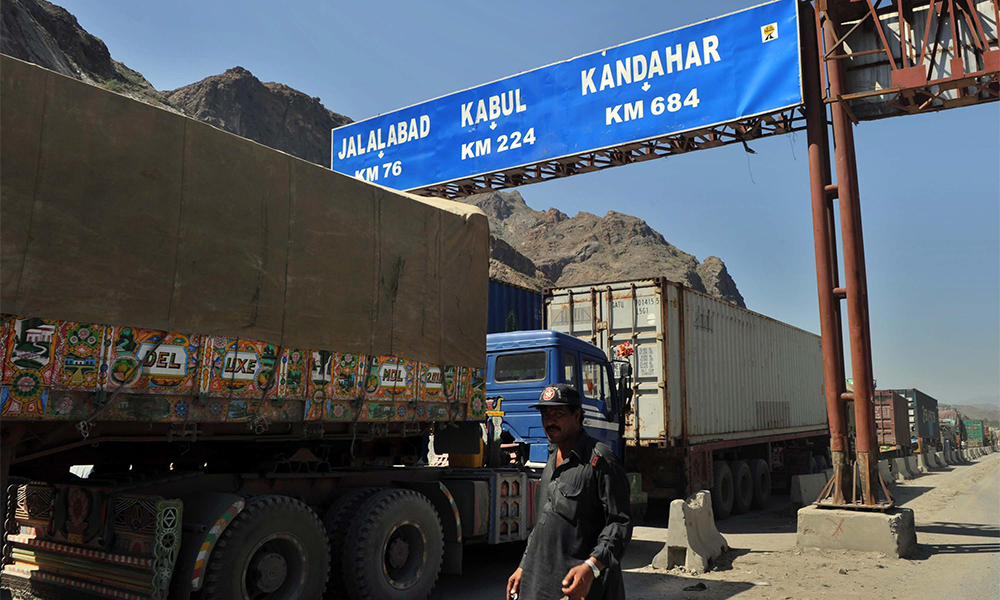
Pakistan has reported that its export of goods and services to Afghanistan witnessed an increase of 64.48 percent during the first nine months of the fiscal year (2024-25) as compared to the exports of the corresponding period of last year.
According to the State Bank of Pakistan (SBP), the overall exports to Afghanistan were recorded at $623.285 million during July-March (FY2024-25) against exports of $378.922 million during the same period last year.
On a year-on-year basis, the exports to Afghanistan decreased by 45.54 percent from $55.907 million in March 2024, against the exports of $30.445 million in March 2025.
On a month-on-month basis, the exports to Afghanistan also dipped by 15.37 percent during March 2025 as compared to the exports of $35.977 million in February 2025, the SBP data revealed.
On the other hand, the imports from Afghanistan into the country during the months under review were recorded at $20.127 million against $6.438 million last year, showing an increase of 212.62 percent in July-March (2024-25).
On a year-on-year basis, the imports from Afghanistan witnessed an increase of 99.79 percent, going up from $0.960 million in March 2024 against the imports of $1.918 million in March 2025.
On a month-on-month basis, the imports from Afghanistan into the country also witnessed a decrease of 36.23 percent during March 2025, as compared to the imports of $3.008m during February 2025, according to the data.
Business
Chinese company keen to invest $50 million in automobile industry in Afghanistan

Chinese automobile company Dongfeng has expressed an interest to invest $50 million in Afghanistan.
A representative of the company said in a meeting with Ahmadullah Zahid, Deputy Minister of Industry and Commerce, that the company wants to invest $50 million in the automobile manufacturing sector in Afghanistan in four phases over a period of three and a half years.
He added that with this investment, 2,000 vehicles will be manufactured per year.
Welcoming the company’s interest in investing in the country Ahmadullah Zahid, the Deputy Minister of Industry and Commerce, described Afghanistan as one of the safe and secure places for investment with favorable profits.
He assured the Chinese that all domestic and foreign investors will be treated equally and will be fully supported.
In the meeting, the representative of Dongfeng also emphasized that the company’s investment in Afghanistan will create jobs for 500 to 700 people in the country.
He said that the company’s products will include cars, trucks, ambulances, and buses.
-

 Latest News5 days ago
Latest News5 days agoEx-Afghan deputy speaker Qadeer back in Kenyan court for criminal case
-

 Latest News4 days ago
Latest News4 days agoPakistan says India launched attack on Afghanistan, India denies
-

 Latest News5 days ago
Latest News5 days agoMCC Chief: Afghan cadres sent to China for AI training
-

 World4 days ago
World4 days agoUS offers to help India and Pakistan start talks, G7 also urges dialogue
-

 Sport4 days ago
Sport4 days agoFIFA OKs creation of Afghanistan women’s refugee team
-

 Regional4 days ago
Regional4 days agoPakistan says it has launched military offensive against India
-

 World4 days ago
World4 days agoTrump says India, Pakistan agree to ‘full and immediate ceasefire’
-
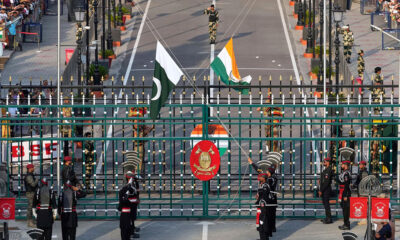
 Regional3 days ago
Regional3 days agoExplosions reported after India and Pakistan agree to ceasefire








